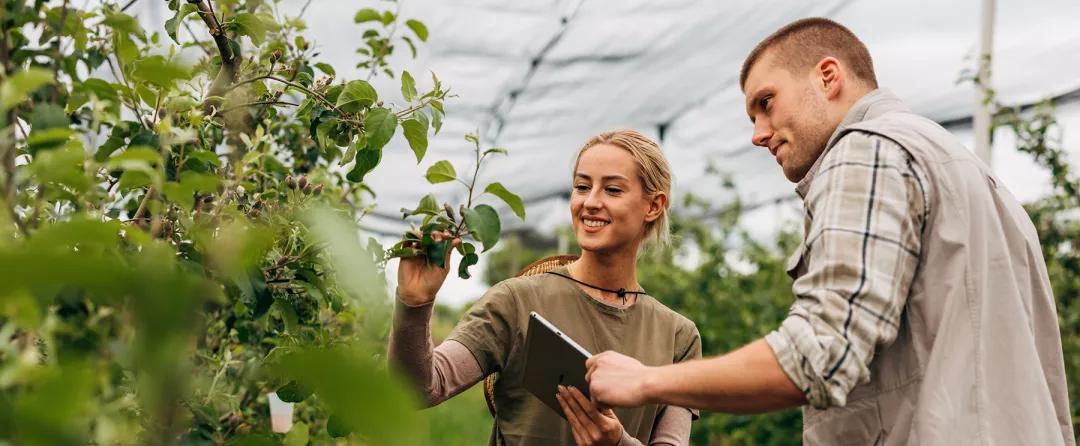Operational Groups working on topics related to pollinators
Browse the EIP-AGRI database for Operational Groups protecting pollinators.

There are many Operational Groups (OGs) which are, or have been working on tackling the decline in pollinators and finding sustainable solutions in agriculture and forestry. Find some examples below, and browse the EIP-AGRI project database for more.
For example, an ongoing Slovenian OG looks at ‘supporting organisms’ that are beneficial to agriculture (organisms such as pollinators and natural enemies of pests). These organisms and their habitats are of great importance to the agricultural landscape, and are often under threat because of intensive agriculture and rapid change. This project implemented measures to ensure the long-term conservation of the habitats and hiding places of supporting organisms, as well as of priority habitat types and habitats that provide a more diverse range of supporting organisms. Maintaining species diversity, protecting natural resources, and increasing the productive potential of agricultural land is also essential for agriculture to be able to adapt to climate change.
Another OG from Slovenia supports pollinators in intensive agricultural landscapes to promote biodiversity. This project aims to bridge the gap between knowledge transfer and practical application in the field of wild pollinator conservation and biodiversity on agricultural land. It will support farmers to implement good practices, improve conditions for wild pollinators and biodiversity, and increase the reliability and quality of pollination and other ecosystem services.
The German OG ‘Practice-research-bees: improvement of varroa management strategies for hessian beekeeper’ developed innovative diagnosis and treatment strategies for the varroa mite, which can cause the loss of entire bee colonies. Chemical treatment of bees can lead to residues in honey, which calls for alternative strategies. Through 'practical bee research', researchers and beekeepers used a camera to take photos of a soil inlay to evaluate it on-site and make an infestation diagnosis.
The ongoing Italian OG ‘Development of agroecological pest protection strategies on seed crops for a reduction in the use of insecticides and the protection of pollinators’ developed agroecological strategies for the control of the main insect pests while simultaneously promoting the pollination of bees and other wild pollinators. “Trap-plants”, consisting of plant species that are attractive to insect pests, and chromotropic traps, will be used to prevent damage by insect pests, with benefits on water quality, soil and biodiversity. The project will also look at the conservation of pollination by bees and other wild pollinators through monitoring flowers, and consequent improvement of crop quality and yield. This will also lead to further environmental benefits, as a package of best practices will reduce the use of inputs that are detrimental for the environment.
Did you know that pollinators are also a focus of several of the Operational Groups nominated for an EIP-AGRI Innovation Award? French Operational Group ‘Preservation of the blackcurrant sector in Burgundy and Franche-Comté’ developed agroecological practices to combat the effects of climate change, in particular the decline in pollinators, focusing on bee species by maintaining O. bicornis nests and introducing flower strips. Romanian Operational Group ‘BEE SMART, BEE HEALTHY’ aimed to test a monitoring and alert system based on a ‘smart’ device for identifying diseases which can be easily adapted to small and large beehives. Discover all the nominees and winners on the awards webpage.
Take a look back at previous Inspirational Idea articles on related OG such as Protecting Farmland Pollinators (IE) and Pasture for pollinators (UK).
There are many more Operational Groups on this topic working across Europe. Browse the EIP-AGRI project database to read about them all.
For more inspiration, read the newsletter from May 2024 which focused on reducing the decline in farmland pollinators.